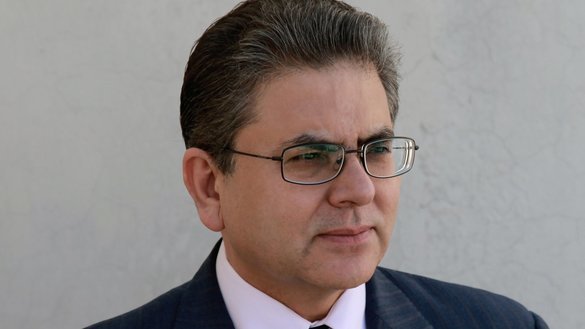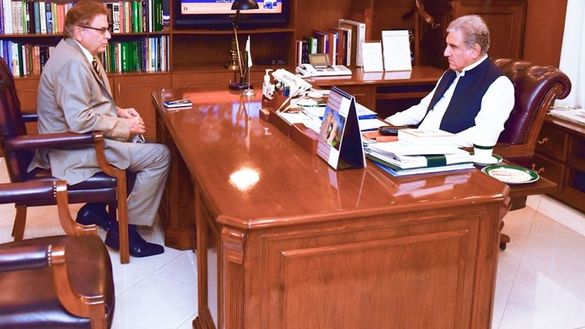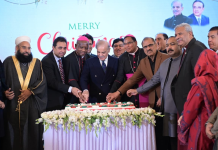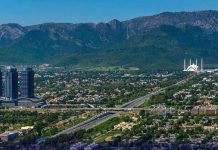ISLAMABAD — Observers in both Pakistan and Afghanistan are hailing the Pakistani government’s appointment of its first special representative for Afghanistan affairs.
This move is aimed at boosting Pak-Afghan relations and helping facilitate the Afghan peace process, officials said.
Prime Minister Imran Khan on June 6 appointed veteran diplomat Mohammad Sadiq as Pakistan’s special representative for Afghanistan affairs.
Soon after his appointment, Sadiq conferred on his role with Pakistani Foreign Minister Shah Mahmood Qureshi, who said, “Islamabad will continue to play its vigorous role in maintaining regional peace and stability,” state-run Radio Pakistan reported.


“Pakistan sincerely played a constructive role in the Afghan peace process, which is now being acknowledged by the world community as well,” Qureshi told Sadiq.
Sadiq is an experienced diplomat who served as ambassador to Afghanistan from 2008-2014 before he retired in October 2016.
He also served on the National Security Committee and was a spokesperson for the Foreign Ministry.
He has held key diplomatic posts in Beijing and Brussels and was deputy chief of mission in Washington, DC, from 1998-2000.
The special representative for Afghanistan affairs is a new position created to spearhead the country’s efforts for the Afghan peace process, according to Foreign Ministry officials.
“Sadiq’s personal relations with all important stakeholders in Afghanistan will help Pakistan’s government in playing its key role in bringing peace in the neighbouring country,” said one official on the condition of anonymity.
Sadiq helped facilitate the Afghanistan Peace Conference in June 2019 in Bhurban, near Islamabad, the official said.
More than 50 political leaders from Afghanistan and Pakistan attended the gathering to build trust between the two countries and boost co-operation in various sectors.
Appointment hailed from both sides
Political analysts and diplomats monitoring Pakistani-Afghan relations from both countries welcomed Sadiq’s appointment.
Sadiq’s “knowledge & understanding of the region and Afghanistan will hopefully enable him to play a constructive role in the region and bilateral relations at this important time”, Afghan Ambassador to Pakistan Atif Mashal tweeted June 6.
The two men had “a productive meeting” on June 8, according to Mashal.
“The formation of his office will help in the implementation of a follow up mechanism for bilateral relations which is a positive step forward,” he tweeted. “We discussed peace and reconciliation as well as trade & transit between Afghanistan and Pakistan.”
“We also discussed Ghulam Khan crossing point and Mr. Sadiq gave assurance of full support and cooperation.”
“Not only does [Sadiq] have deeper knowledge, understanding & right temperament for the job but also has been strong advocate for more constructive Pak Afghan policy, promoter of peace & close bilatral [sic] relations,” Omar Zakhilwal, a former Afghan ambassador to Pakistan, tweeted on June 6.
Sadiq’s appointment shows that Pakistan’s government is extending its support to end the insurgency in Afghanistan, said Tahir Khan, an Islamabad-based journalist covering the Afghan peace process.
“Prime Minister Imran Khan’s government seeks to resolve the war in Afghanistan and to establish closer ties,” he said.
Despite the COVID-19 coronavirus outbreak, the Pakistani government recently allowed the cross-border movement of trucks six days a week, with one day each week aimed at enabling Pakistanis and Afghans who are stranded in each other’s country to return to their homeland, Khan said.
Sadiq’s appointment will help convene an overdue meeting of the Afghanistan-Pakistan Action Plan for Peace and Solidarity (APAPPS), a co-operation framework set up last year, he said.
APAPPS — a forum with the common objectives of eradicating terrorism, achieving peace and stability, and developing the region — has not held a meeting since 2019 because of tensions between the two countries.
“Hailing from Khyber Pakhtunkhwa Province and serving as an ambassador in Afghanistan, Sadiq understands the complexities of the Afghan conflict in both its historical and socio-economic contexts,” said Bilal Alkozai, a Kabul-based researcher monitoring the peace talks in Afghanistan.
Pakistan’s role in resolving the Afghan conflict in the past has been based on a military outcome, and Sadiq’s appointment now will allow Pakistan to focus on a political solution to ensure peace in the region, he said.
Peace talks in Afghanistan
The appointment of Sadiq comes amid renewed efforts to start intra-Afghan talks.
US Special Representative for Afghanistan Reconciliation Zalmay Khalilzad left Washington, DC, on June 5 to advance peace efforts in Kabul, Doha and Islamabad.
On June 7, Khalilzad conferred with Pakistani Chief of Army Staff Gen. Qamar Javed Bajwa on the steps required for the start of intra-Afghan negotiations.
“The two took note of recent progress created by the Eid ceasefire and accelerated prisoner releases as well as reduced violence ahead of intra-Afghan negotiations,” the US Embassy in Islamabad said in a statement.
A Pakistani delegation headed by Bajwa on June 9 visited Kabul for talks with Afghan President Ashraf Ghani and Abdullah Abdullah, chairman of the Afghan High Council for National Reconciliation. The two sides discussed peace efforts and Pakistan’s role, TOLOnews reported, citing the Afghan government.











